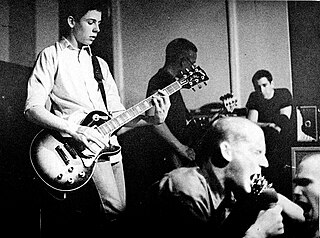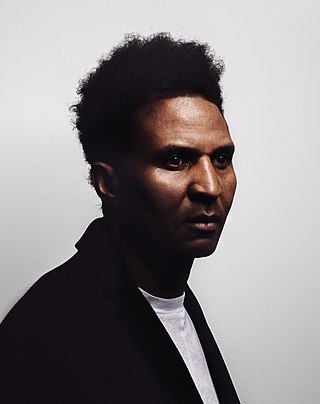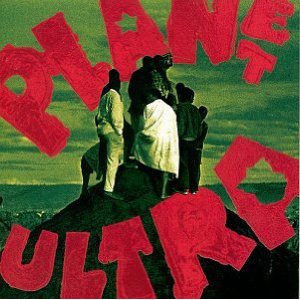Ska is a music genre that originated in Jamaica in the late 1950s and was the precursor to rocksteady and reggae. It combined elements of Caribbean mento and calypso with American jazz and rhythm and blues. Ska is characterized by a walking bass line accented with rhythms on the off beat. It was developed in Jamaica in the 1960s when Stranger Cole, Prince Buster, Clement "Coxsone" Dodd, and Duke Reid formed sound systems to play American rhythm and blues and then began recording their own songs. In the early 1960s, ska was the dominant music genre of Jamaica and was popular with British mods and with many skinheads.

Hardcore punk is a punk rock music genre and subculture that originated in the late 1970s. It is generally faster, harder, and more aggressive than other forms of punk rock. Its roots can be traced to earlier punk scenes in San Francisco and Southern California which arose as a reaction against the still predominant hippie cultural climate of the time. It was also inspired by Washington D.C. and New York punk rock and early proto-punk. Hardcore punk generally disavows commercialism, the established music industry and "anything similar to the characteristics of mainstream rock" and often addresses social and political topics with "confrontational, politically-charged lyrics."
Pop-punk is a rock music genre that combines elements of punk rock with power pop or pop. It is defined by its fast-paced, energetic tempos, and emphasis on classic pop songcraft, as well as adolescent and anti-suburbia themes. It is distinguished from other punk-variant genres by drawing more heavily from 1960s bands such as the Beatles, the Kinks, and the Beach Boys. The genre has evolved throughout its history, absorbing elements from new wave, college rock, ska, rap, emo, and boy bands. It is sometimes considered interchangeable with power pop and skate punk.

Kirk Thompson, better known by his stage name Krust, is an English drum and bass producer, DJ and co-owner of the Full Cycle record label. Beyond his roles in the music industry, Thompson is also responsible for two businesses: creative consultancy Disruptive Patterns and Amma Life, a CBD oil company he co-owns with Sophia Ali

Agnostic Front is an American hardcore punk band from New York City. Founded in 1980, the band is considered an important influence on the New York hardcore scene, as well as a pioneer of the crossover thrash genre.
Crossover is a term applied to musical works or performers who appeal to different types of audience. This can be seen, for example, when a song appears on two or more of the record charts which track differing musical styles or genres. If the second chart combines genres, such as a "Hot 100" list, the work is not a crossover.
Post-hardcore is a punk rock music genre that maintains the aggression and intensity of hardcore punk but emphasizes a greater degree of creative expression. It was initially inspired by post-punk and noise rock. Like the term "post-punk", the term "post-hardcore" has been applied to a broad constellation of groups. Post-hardcore began in the 1980s with bands like Hüsker Dü and Minutemen. The genre expanded in the 1980s and 1990s with releases by bands from cities that had established hardcore scenes, such as Fugazi from Washington, D.C. as well as groups such as Big Black, Jawbox, Quicksand, and Shellac that stuck closer to post-hardcore's noise rock roots. Dischord Records became a major nexus of post-hardcore during this period. The genre also began to incorporate more dense, complex, and atmospheric instrumentals with bands like Slint and Unwound, and also experienced some crossover from indie rock with bands like The Dismemberment Plan. In the early- and mid-2000s, post-hardcore achieved mainstream success with the popularity of bands like At the Drive-In, My Chemical Romance, Dance Gavin Dance, AFI, Underoath, Hawthorne Heights, Silverstein, The Used, Saosin, Alexisonfire, and Senses Fail. In the 2010s, bands like Sleeping with Sirens and Pierce the Veil achieved mainstream success under the post-hardcore label. Meanwhile, bands like Title Fight and La Dispute experienced underground popularity playing music that bore a closer resemblance to the post-hardcore bands of the 1980s and 1990s.

Rap rock is the fusion of hip hop and rock music. The genre was developed in 1986 by hip hop artists Run-DMC and Beastie Boys and the band Urban Dance Squad, as well as subsequent acts such as Kid Rock.
Patrick "Rudeboy" Tilon is a Dutch musician, best known as the singer of the rap rock band Urban Dance Squad, which he led from 1986 to 2000, and the first two albums of Dutch electronic musician Junkie XL (1997-2000).
Moon Ska Records was one of the most influential ska record labels of the 1980s and 1990s.

Whodini is an American hip hop group that was formed in 1982. The Brooklyn, New York-based trio consisted of vocalist and main lyricist Jalil Hutchins; co-vocalist John Fletcher, a.k.a. Ecstasy ; and turntable artist DJ Drew Carter, a.k.a. Grandmaster Dee.

Urban Dance Squad was a Dutch rap rock band formed after what was originally intended as a one-time jam-session at a festival in Utrecht on December 20, 1986. The band consisted of a guitarist, bassist, drummer, rapper, and DJ. Urban Dance Squad was one of the most successful Dutch bands of the nineties, releasing five studio albums.
The Beat is an American rock and power pop band from Los Angeles that formed in 1979. Paul Collins' Beat resurfaced in the 1990s and continues to tour and record new material. Front man Paul Collins has released several projects with his alternative country group The Paul Collins Band, who play Americana music inspired by country rock and folk rock.
A number of overlapping punk rock subgenres have developed since the emergence of punk rock in the mid-1970s. Even though punk genres at times are difficult to segregate, they usually show differing characteristics in overall structures, instrumental and vocal styles, and tempo. However, sometimes a particular trait is common in several genres, and thus punk genres are normally grouped by a combination of traits.
Crossover thrash is a fusion genre of thrash metal and hardcore punk. The genre lies on a continuum between heavy metal and hardcore punk. Other genres on the same continuum, such as metalcore and grindcore, may overlap with crossover thrash.
Christian ska is a form of Christian alternative rock, and subgenre of ska and ska punk which is lyrically oriented toward contemporary Christian music. Though ska did not constitute a genre within the Christian music industry until after third wave ska had peaked in the general market, Christian ska continued to thrive independently into the early 2000s.

Planet Ultra is a studio album by Dutch rap rock band Urban Dance Squad. Though DJ DNA had not yet returned by this point, the band once again made use of turntables. Band member Rudeboy sings on the album.

Mental Floss for the Globe is the debut album by Dutch rap rock band Urban Dance Squad. Released in 1989 and produced by Belgian guitarist Jean-Marie Aerts, the album features a crossover of several music genres, such as rock, hip hop, and funk. It spawned the hit single "Deeper Shade of Soul," which gained the band international recognition, including in the United States, where they toured with Living Colour. The album got to #54 on the Billboard 200 album chart.

Arjen de Vreede, known by his stage name DJ DNA, is a Dutch DJ and producer. At age seventeen, he started as a DJ, and became a pioneer in the Dutch music scene playing hip hop, house, acid house and techno in renowned Dutch clubs such as the Roxy and the Vrije Vloer. He also co-founded the band Urban Dance Squad.








